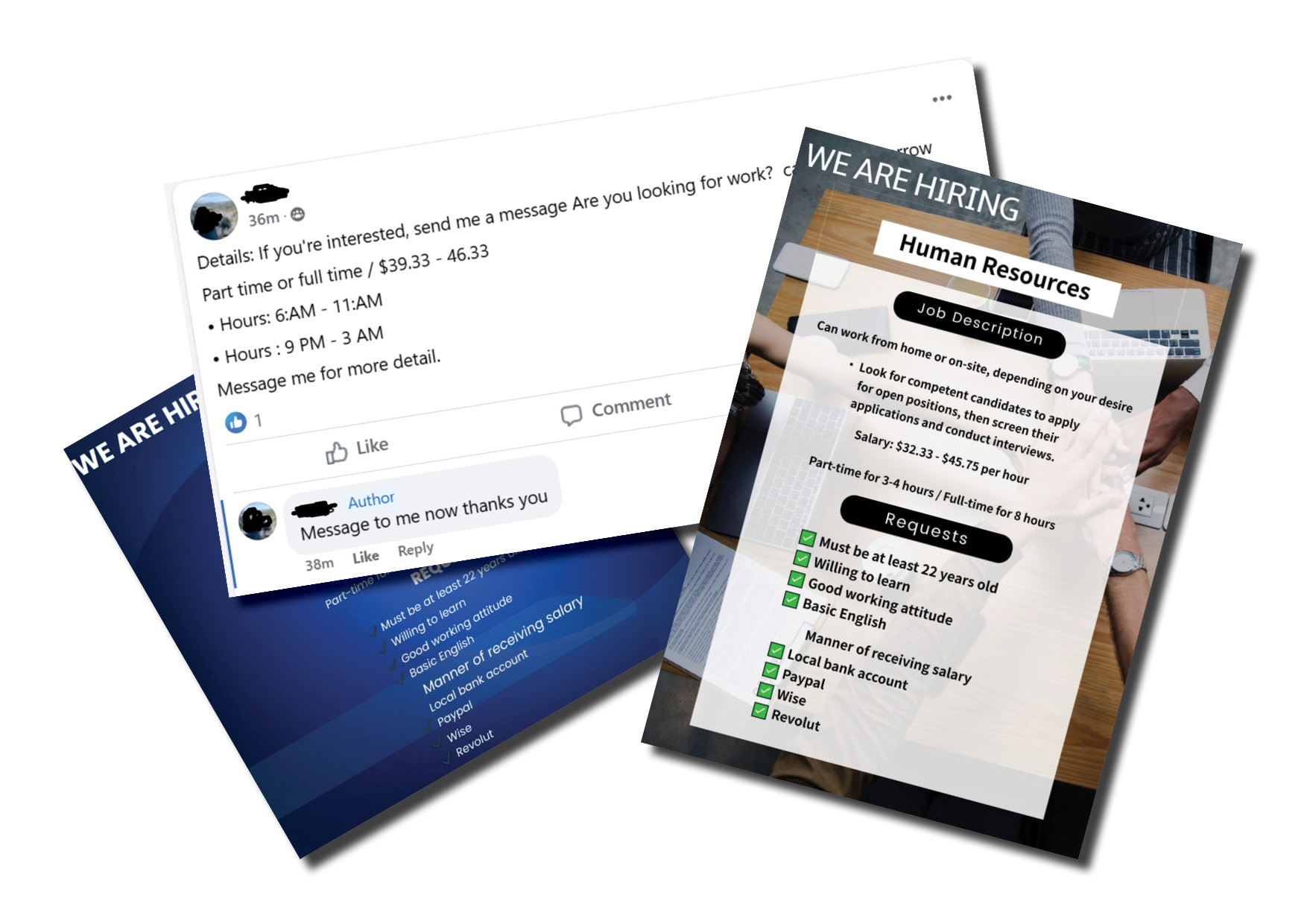SCAM ALERT: Fake job offers targeting some of our most vulnerable
Douglas employment

Job seekers across Douglas Shire are dealing with an increasing number of phishing scams disguised as employment offers in community and backpacker chat groups on social media.
The scammers prey on people looking for casual or immediate work, often luring victims with vague but appealing offers posted in trusted spaces like the Port Douglas Backpackers Facebook group.
These posts, and the private messages that follow, are designed to sound urgent, friendly, and generous, offering flexible, well-paid jobs starting “tomorrow” with little-to-no experience required.
Shire resident Liel G, who did not want her full name published, said she had an unsettling experience after being contacted about a work-from-home opportunity.
“It's hard to tell right away that it's a scam, because the scammers really show that they want to help you and find you a job,” she said.
“And then when you talk to them, you realise that the conditions and hours are ridiculous, and that you can work from home and you don't have to study anything for it.
“And then you realise that it's a lie.”
Liel said that some people do not even realise they’ve fallen into a scam, and only realise something’s off when it's too late.
According to Federal Government watchdog Scamwatch, more than 6000 Australians reported losses totalling $58.3m last year due to social-media scams alone.
Employment scammers typically pose as friendly recruiters or employers, either posting in groups or sending private messages directly to users.
They often say they’re hiring for remote or local positions and promise high wages for minimal effort, but do not provide clear job titles, company names, or even basic job responsibilities.
Once the conversation progresses, victims may be asked to provide personal information, move the chat to WhatsApp or Telegram, share bank account details and pay a small “registration” or “processing” fee.
If a scammer obtains your bank account information, unauthorised withdrawals can occur immediately, then identity theft can follow, with scammers opening accounts or applying for credit in your name.
Victims often have to close bank accounts, file police reports, and spend months repairing financial damage.
Signs of a scam include: The Facebook profile was recently created, and the person has few friends or activity; Job descriptions are vague, lacking titles or company names; The salary is unrealistically high and no experience is required, and; The language used is overly casual.
If the profile looks suspicious, search the name on social media sites, with scammers often copying photos and names from real people - if you find another legitimate profile with similar photos, consider messaging them to let them know their identity may have been stolen.
If you have been scammed: Contact your bank immediately to report it or freeze your account; Update your passwords and enable two-factor authentication; Report it to scamwatch.gov.au, and; If your identity has been stolen, contact idcare.org.
If you need further support, contact Lifeline on 13 11 14 or Beyond Blue on 1300 224 636.
*Have you or someone you know been approached with a suspicious job offer online? We would love to hear your story at [email protected]. The more we share and speak up, the harder it becomes for scammers to succeed.
Support public interest journalism
Help us to continue covering local stories that matter. Please consider supporting below.




















